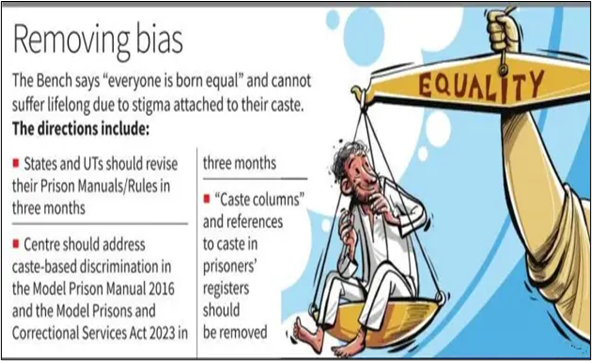PREVIOUS
Supreme Court on Casteism in Prison
October 13 , 2024
194 days
365
0
- The Supreme Court declared that caste-based division of labour in prisons is “unconstitutional”.
- It highlighted the provisions in prison manuals in States such as Uttar Pradesh, West Bengal, Odisha, Maharashtra, Tamil Nadu, and Kerala that legitimised caste inequalities.
- The Rajasthan Prison Rules, 1951, allocated latrine duties to the “Mehtar” caste, a SC community and Brahmins or “sufficiently high caste Hindu prisoners” were assigned to the kitchens.
- Segregating prisoners on the basis of caste would reinforce caste differences or animosity that ought to be prevented in the first place.
- The differentiating between inmates based on “habit,” “custom,” “superior mode of living,” and “natural tendency to escape” offends principles of substantive equality.
- All States and Union Territories were directed to amend their prison manuals and rules within three months to abolish such discriminatory practices.
- The court also mandated the removal of the “caste column” and any references to caste in the registers of undertrials and convicts maintained in prisons.
- The court also ordered that necessary reforms be implemented in both the 2016 manual and the 2023 Act within three months.

Leave a Reply
Your Comment is awaiting moderation.


